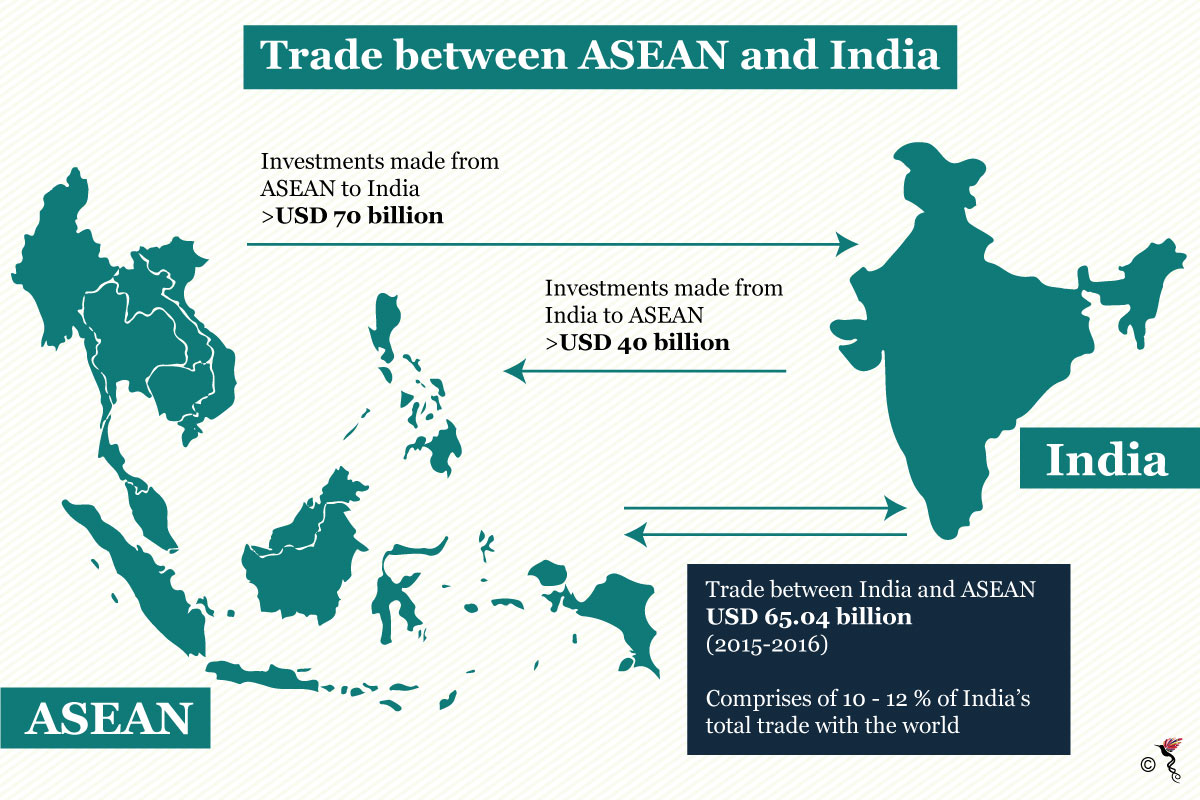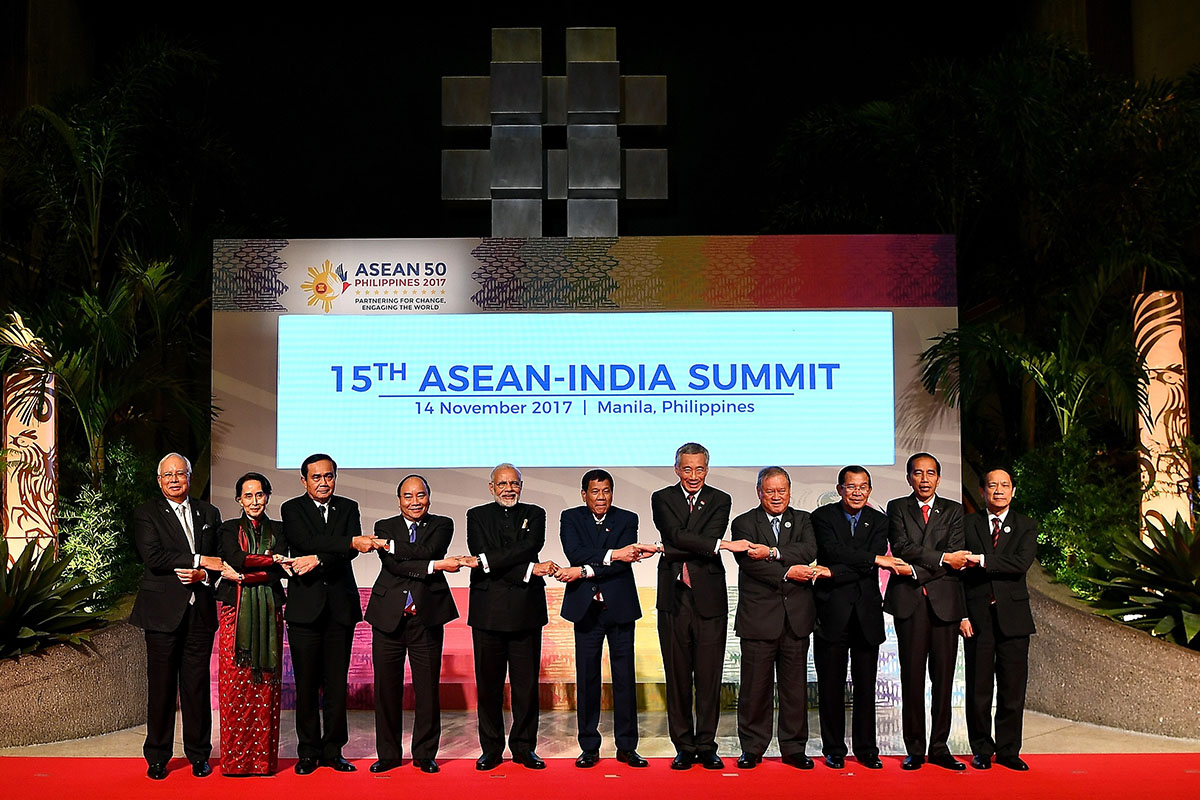On the 14th of November, Association of Southeast Asian Nations (ASEAN) leaders welcomed Prime Minister Narendra Modi, who arrived in Manila to attend the 31st ASEAN Summit and Related Meetings.
On the agenda for Modi was also the 15th ASEAN-India Summit which was hosted to celebrate the 25 years of dialogue, partnership and diplomatic relations between India and ASEAN member states as well as review the broad scale of ASEAN-India cooperation in all its aspects. India and ASEAN have 30 dialogue mechanisms in place including a summit and seven ministerial meetings.
The ASEAN-India Summit discussed various issues of interest to both parties including matters of trade, investment, security and defence. One of the major issues discussed in the meeting was India’s Act East policy.
The policy serves as an extension of the Look East Policy which was introduced by then Prime Minister P.V. Narasimha Rao in 1991. It focusses on economic engagements and strategic partnerships with other East Asian nations.
The Look East policy was established to cultivate pervasive economic and strategic relations with Southeast Asian nations. It was also introduced to help bolster India’s standing as a regional power as well as to act as a counterweight against the rise of China. The policy desired to create and expand their regional markets for trade, investments and industrial development.
In his speech, Modi remarked that he has made relations between India its East Asian neighbours a foreign policy priority, especially during a time when the United States has decided to deepen its focus on Asia. His words come in the heels of China’s grandiose Belt Road Initiative (BRI). In particular, India is extremely wary of Chinese expansionism in what experts call, “the string of pearls” – in reference to the development of Chinese military and commercial facilities which geographically encroach India and help further bolster Beijing’s regional presence.
Issue of trade relations were also high on the agenda during the meeting. According to an official press release from the Government of India, trade between India and ASEAN is worth 71 billion dollars in 2016-17 and comprises of 10.85% of India’s total trade with the world.

Trade between ASEAN and India
Early conclusion of a balanced Regional Comprehensive Economic Partnership Agreement (RCEP) will further increase trade and investment ties with the region. The RCEP agreement seeks to deepen existing Free Trade Agreements (FTA) ASEAN and its six existing FTA partners – India, Japan, South Korea, China, Australia and New Zealand.
RCEP’s development would be more interesting to watch given that both India and China are involved in the trade deal. Nevertheless, India’s push for an early conclusion of the agreement is possibly motivated by China’s expansionist BRI project.
“With RCEP process showing little progress, China will continue to exert leadership through the BRI, with a focus on connectivity and infrastructure,” Mary Lovely, a Visiting Fellow at the Washington DC based, Peterson Institute for International Economics told The ASEAN Post in an email interview.
Besides that, there were also discussions on the 3rd ASEAN-India Plan of Action and its widespread agenda of cooperation that encompasses the three essential pillars of politico-security, economic and cultural partnership. Modi also acknowledged terrorism and extremism as major challenges facing the region, and called upon ASEAN member states to unite together and mitigate terror attacks. He announced that India will continue to lend its support to ASEAN as it seeks to achieve a regional security architecture that best attests to the regions interests and its peaceful development.
Recommended stories:
